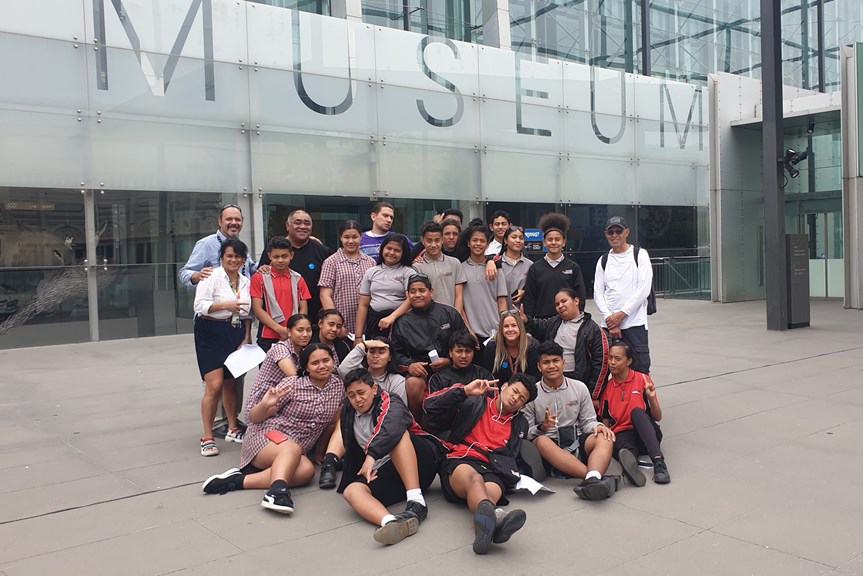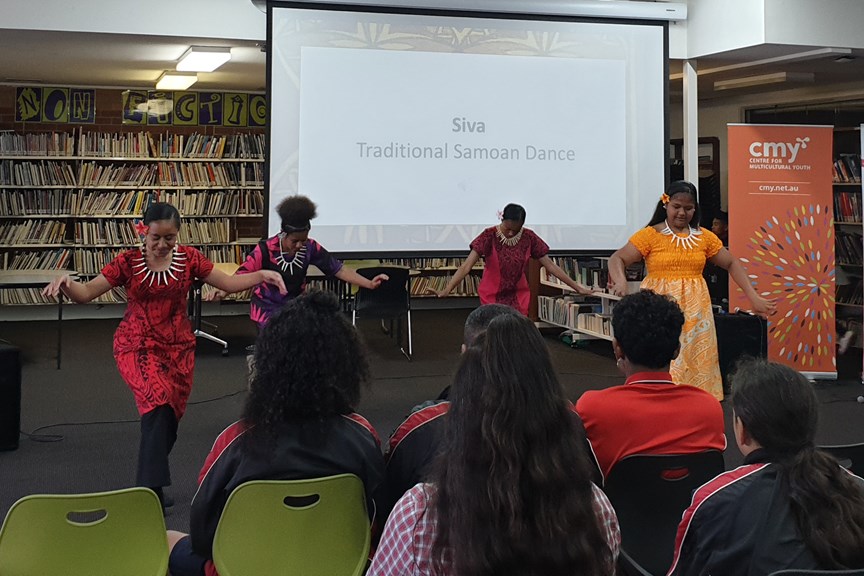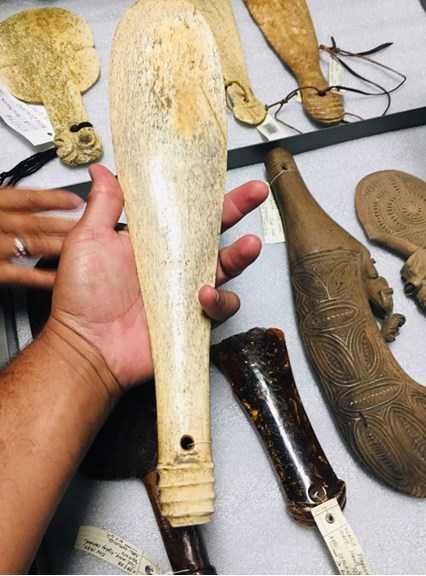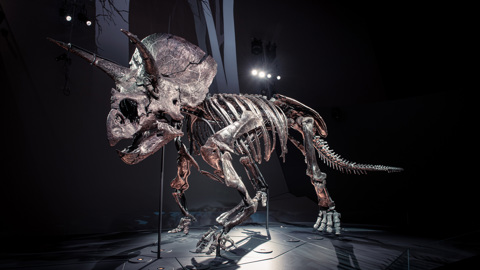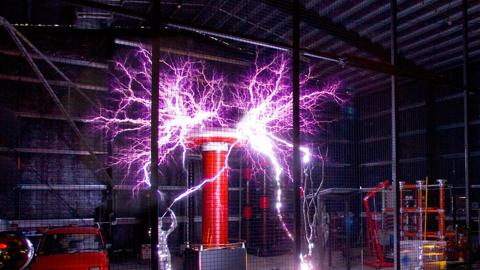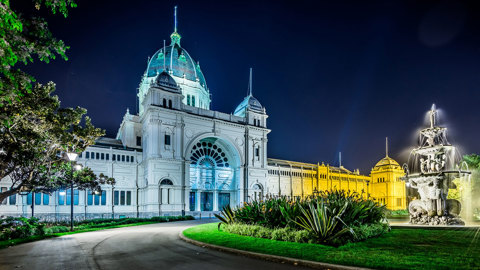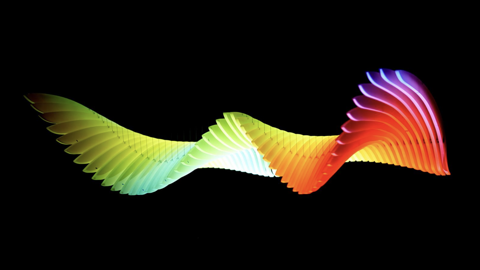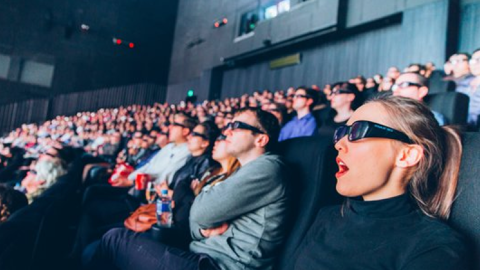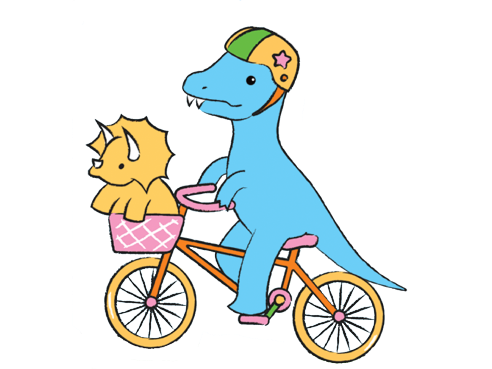Le Mana — Empower
Paora and Temese speak about young people and the power of taonga | treasures.
Temese: One of the things that we really did when we delivered our activities was taking them back to their traditional identity. That was the platform we established right from the outset. You need to know who you are… you need to know—there’s a saying that you don’t know where you are heading into the future, if you don’t reflect on your past. Our young people don’t have an understanding of their past.
Part of that, when we did our activity, we realised when we got into contact with the museum, that they were opening an opportunity for us to come and see all our treasures, our measina and all that. So we thought, that’s a good opportunity for our young people. And man, we didn’t realise how much of an impact that would be on our young people until we actually took them out on the day. When they actually could literally just touch the treasures and hear the stories behind it from the staff there, how they acquired it, what the meaning of each of these items were.
And then we talked about the identity, the pride of your culture, the practice, the values. They were really impacted, ay. It was just all round a good day, you could just, felt the mana, and the pride in the young people. At the end, one of the young students got up and spoke on behalf of the group. It wasn’t planned, they just got up amongst themselves and talked about it and I think just, you know we talk about telling the story, we talk about the art of oratory and so these young people felt, you know, they felt, what’s the word, they felt blessed and privileged enough to get up and actually speak on behalf of the group and just thank the staff for everything they did. And just sitting back and watching it, you know just I think that was a really good learning, learning curve for the young people.
We went back and they were very very empowered. They couldn’t stop talking about what they had seen. It really sort of cemented and consolidated the programs that we did at the school.
Paora: For our young people just to be able to be in that space and build the relationship with our, the Pasifika team there, they explained their roles, ay, and our young people were blown away just to and hear, you know seeing our people in this space, that perhaps is predominantly western and our people are these experts in this space.
You know, yeah, it’s special and it’s hard for me to describe in words. It’s just these are the treasures of our ancestors, this is our connection to them. So I guess I was like, was thinking how did this get here? You know, what happened with our ancestors? It was beautiful to be there but our taonga were separated from our people through colonisation.
Temese: So we say in Sāmoa it’s a vā tapuia | space made sacred, ay. So, and because of the history of the story of how they were acquired, there could be an offence incurred there, ay. If there was, ah, angst towards this, forming this relationship, in the sense that these were taken away from our people without their consent, then that needs to be approached through the spiritual realm that we’re in as far as our identity as Pasifika, e iai le vā tapuia, we have to try and acknowledge that space. And if it means not repatriating a lot of the stuff back to where it belongs to but actually giving the blessings of the village, I mean of the people, to say ok we have now gone back and we've rebuilt this relationship. So when people come into the space, it’s a positive space, the relationship’s been restored in a sense.
